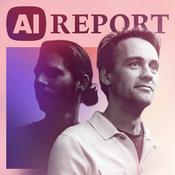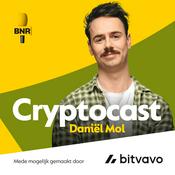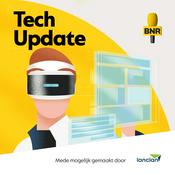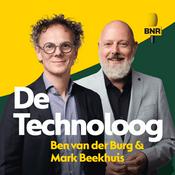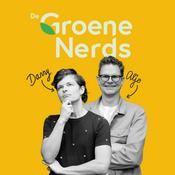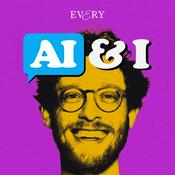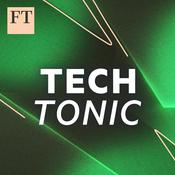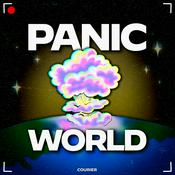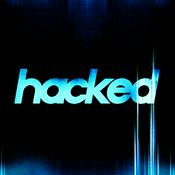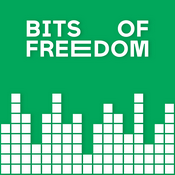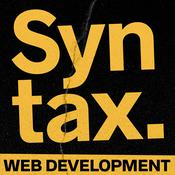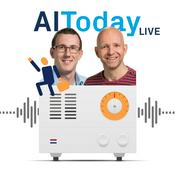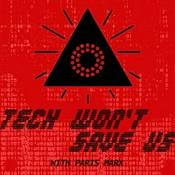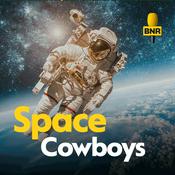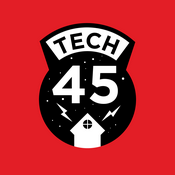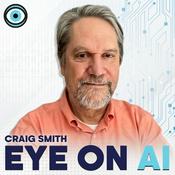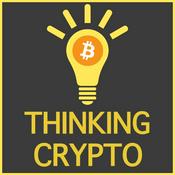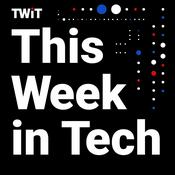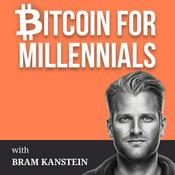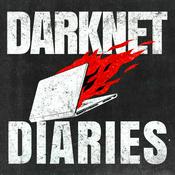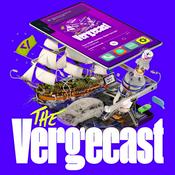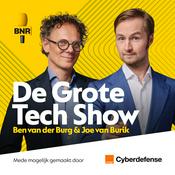8 afleveringen

Episode 8: Rayya El Zein on the Digital Infrastructure Incubator
18-4-2022 | 30 Min.
Guest Rayya El Zein | Saranjeet Kaur Bhogal | Heather Turner | Batool Almarzouq | Nic Weber Jackson Maxfield Brown | Stephan Druskat | Gemma Turon | Miquel Duran Frigola Panelist Richard Littauer Show Notes Hello and welcome to the Digital Infrastructure Fund Podcast! This is the podcast where we focus on recipients of the Digital Infrastructure Grant Fund which has funded by multiple funders. We don’t just interview current cohorts, but also past cohorts who have gotten funding from this grant pool. Today, I’m very excited with all my guests. We have one repeat guest, Rayya El Zein, who is the Program Manager of the Digital Infrastructure Incubator at Code for Science and Society and all of her relevant cohorts. Rayya is here to explain the digital incubator she’s been building and how it works, introduce five of the teams they’ve been working with this year, and we’ll learn more about the six projects. There are three focus groups, Governance, Community Engagement, and Cultural Infrastructure, and we’ll learn more about what these cohorts have been working on in each of them. Go ahead and download this episode to learn much more! [00:01:08] Rayya explains the digital incubator she’s been building and how it works. [00:02:57] Our first cohorts, Saranjeet Kaur Bhogal and Heather Turner, explain how they’re building community around the R Development Guide. [00:05:47] Batool Almarzouq from the Open Science Community-Saudi Arabia tells us about the Cultural Infrastructure Focus Group, the FAIR Principles, and the right to left languages. [00:09:16] The team from Council Data Project (CDP), Nic Weber and Jackson Maxfield Brown, speak about their work in the Civic Tech Space and what the Council Data Project is all about, and Code for America. [00:12:57] Stephan Druskat, a team member in the Governance focus group and represents the Citation File Format project explains what they do. [00:17:46] The last team is Gemma Turon and Miquel Duran-Frigola, co-founders at the Ersilia Open Source Initiative. They tell us where you can get involved in their projects online, and if you’re a larger organization, where you can contribute funds, developers, time, assets, money, etc. [00:23:35] Rayya talks about Solar Protocol, which is the sixth team that is not with us today, and the team that accompanies Ersilia in the Community Engagement Focus Group. We also find out what Rayya is most excited about for this project. [00:26:50] Find out about a wrap-up event that will be happening to learn more about all this work with these six projects. Grant Details Title: Dig. Inf. Incubator Grantees: Rayya El Zein, Danielle Robinson Description: Supporting projects to implement research-informed best practices at the time of need on governance, sustainability, and inclusion. Code for Science & Society's cohort program is designed to amplify the impact of research-based recommendations by providing tailored support for open source project leaders as they iterate solutions around a single sociotechnical challenge. Links Ford Foundation (https://www.fordfoundation.org/) Alfred P. Sloan Foundation (https://sloan.org/) Open Society Foundations (https://www.opensocietyfoundations.org/) Omidyar Network (https://omidyar.com/) Open Collective Foundation (https://opencollective.com/foundation) Mozilla Open Source Support Program (https://www.mozilla.org/en-US/moss/) The Digital Infrastructure Fund Podcast (https://dif.fireside.fm/) Richard Littauer Twitter (https://twitter.com/richlitt?ref_src=twsrc%5Egoogle%7Ctwcamp%5Eserp%7Ctwgr%5Eauthor) Richard Littauer (email) (mailto:[email protected]) Digital Infrastructure podcast-Episode 1: The Digital Incubator, with Danielle Robinson and Rayya El Zein (https://dif.fireside.fm/1) Rayya El Zein Twitter (https://twitter.com/rayelz) Rayya El Zein Website (https://www.rayyasunayma.com/) Rayya El Zein LinkedIn (https://www.linkedin.com/in/rayya-el-zein-phd-8535a627) Saranjeet Kaur Bhogal Twitter (https://mobile.twitter.com/qwertyquesting) Saranjeet Kaur Bhogal LinkedIn (https://www.linkedin.com/in/saranjeet-kaur-48ab769b/) Saranjeet Kaur Bhogal Website (https://twitter.com/heathrturnr) Heather Turner Twitter (https://twitter.com/heathrturnr) Heather Turner LinkedIn (https://www.linkedin.com/in/heathrturnr/) Heather Turner Website (https://warwick.ac.uk/fac/sci/statistics/staff/academic-research/turner/) Batool Almarzouq Twitter (https://twitter.com/batool664?lang=en) Batool Almarzouq LinkedIn (https://www.linkedin.com/in/batool-almarzouq-093366a1/) Batool Almarzouq Website (https://batool-almarzouq.netlify.app/) Nic Weber Twitter (https://twitter.com/nniiicc) Nic Weber Website (http://nicweber.info/) Jackson Maxfield Brown Twitter (https://twitter.com/jmaxfieldbrown) Jackson Maxfield Brown LinkedIn (https://www.linkedin.com/in/jacksonmaxfield/) Jackson Maxfield Brown Website (https://jacksonmaxfield.github.io/) Stephan Druskat Twitter (https://twitter.com/stdruskat) Stephan Druskat Website (https://sdruskat.net/) Gemma Turon Twitter (https://twitter.com/TuronGemma) Gemma Turon LinkedIn (https://es.linkedin.com/in/gemma-turon) Miquel Duran Frigola Twitter (https://twitter.com/mduranfrigola) Miquel Duran Frigola LinkedIn (https://es.linkedin.com/in/miquel-duran-frigola-06b00347) R Development Guide (https://contributor.r-project.org/rdevguide/) Software Sustainability Institute (https://www.software.ac.uk/) Software Carpentry (https://software-carpentry.org/) Collaboration Campfires (https://contributor.r-project.org/events/collaboration-campfires) FAIR Principles (https://www.go-fair.org/fair-principles/) Council Data Project (CDP) (https://councildataproject.org/) CDP in action (Seattle) (http://councildataproject.org/seattle/#/events/f3351cc9822f) Council Data Project repositories-GitHub (https://github.com/CouncilDataProject) Code for America (https://codeforamerica.org/) FORCE11 (https://force11.org/) The CodeMeta Project (https://codemeta.github.io/) Citation File Format (CFF) (https://citation-file-format.github.io/) Citation File Format-GitHub (https://github.com/citation-file-format/citation-file-format) About CITATION files-GitHub Docs (https://docs.github.com/en/repositories/managing-your-repositorys-settings-and-features/customizing-your-repository/about-citation-files) Ersilia (https://www.ersilia.io/) Ersilia Model Hub-GitHub (https://github.com/ersilia-os/ersilia) Open Science Community Saudi Arabia (OSCSA) (https://osc-ksa.com/) Open Science Community Saudi Arabia (Zenodo-communities) (https://zenodo.org/communities/1231231664/?page=1&size=20) Solar Protocol (http://solarprotocol.net/) The Digital Infrastructure Incubator at Code for Science & Society (https://incubator.codeforscience.org/) How is digital infrastructure a critical response to fight climate change? (https://digitalinfrastructure.fund/projects/digital-infrastructure-vs-climate-change/) How might digital infrastructure projects embrace cooperatives as a sustainable model for working? (https://digitalinfrastructure.fund/projects/cooperative-model-for-digital-infrastructure/) Credits Produced by Richard Littauer (https://www.burntfen.com/) Edited by Paul M. Bahr at Peachtree Sound (https://www.peachtreesound.com/) Show notes by DeAnn Bahr Peachtree Sound (https://www.peachtreesound.com/) Special Guests: Batool Almarzouq, Gemma Turon, Heather Turner, Jackson Maxfield Brown, Miquel Duran Frigola, Nic Weber, Rayya El Zein, Saranjeet Kaur Bhogal, and Stephan Druskat.

Episode 7: Caroline Sinders on the Importance of Diverse Commmunities
29-11-2021 | 37 Min.
Guest Caroline Sinders Show Notes Hello and welcome to the Digital Infrastructure Fund podcast! This is the podcast where we focus on recipients of the Digital Infrastructure Grant Fund which has funded by multiple funders. We don’t just interview current cohorts, but also past cohorts who have gotten funding from this grant pool. Today, we have Caroline Sinders, the Founder of Convocation Design + Research, as well as a lecturer at the London College of Communication in their Data Visualisation Masters program. She’s an artist and researcher and a lot of work she does is on online gender-based violence, as well as community health and toxicity. Caroline goes in depth about the grant she received funding for: “What can the history of JavaScript teach us about techniques to mitigate harassment (a barrier to diversity and a threat to the sustainability of digital infrastructure projects) in open source communities?” We learn about the JSConfs, Codes of Conduct, and responding to harassment. Also, Caroline explains three types of infrastructure she looks at -- social, technical, and political -- and she tells us about the accountability ladder. Go ahead and download this episode now to find out much more! [00:01:17] Caroline tells us more about this grant she was given and why this grant sounded like a good idea. [00:07:58] We hear more about the JSConfs that happen all around the world. [00:10:16] Find out how Caroline studied the JavaScript communities. [00:11:49] How does Caroline know if a community is healthy? She mentions BrooklynJS, which has talks that are related to bigger problems in technology. [00:17:23] Caroline mentions interviewing Kim Crayton and Jen Schiffer for this project, and she held a convening with members from Simply Secure, NYC Resistor, and Babycastles. She also talks about a great Code of Conduct book by Valerie Aurora. [00:20:28] Richard tells us how he felt so involved going to a BrooklynJS meetups and Caroline goes in depth how this project exists because of BrooklynJS. She also tells us when she moved to San Francisco she went WaffleJS, moved to Berlin and went to BerlinJS, and how it made her feel like a part of the community. [00:23:03] Richard wonders what Caroline thinks the takeaways are for large corporate events or for corporate open source, and if she feels like it makes it much hard to say implement anti-harassment techniques or to deal with code of conduct violations. Also, if she would change her report towards a more mature ecosystem. [00:25:45] Find out about the Accountability Ladder by Eva Howe and why it’s so important. [00:32:10] Richard asks Caroline where she sees her work going to help understand how we can build all of our technical infrastructure better off. [00:37:01] Find out where you can follow Caroline online. Quotes [00:14:52] “One of the ways I can think of measuring toxicity is how amenable is the entire community, as well as the organizers to having [hard] conversations.” [00:25:18] “It’s important that you have a space if someone feels uncomfortable, that they can go and sit in that’s private, but it’s not accessible to the rest of the conference.” [00:30:36] “When you design for the most vulnerable, you make the safest kinds of experiences. And it’s really important that we do that!” Links Ford Foundation (https://www.fordfoundation.org/) Alfred P. Sloan Foundation (https://sloan.org/) Open Society Foundations (https://www.opensocietyfoundations.org/) Omidyar Network (https://omidyar.com/) Open Collective Foundation (https://opencollective.com/foundation) Mozilla Open Source Support Program (https://www.mozilla.org/en-US/moss/) Richard Littauer Twitter (https://twitter.com/richlitt?ref_src=twsrc%5Egoogle%7Ctwcamp%5Eserp%7Ctwgr%5Eauthor) Richard Littauer Email (mailto:[email protected]) Caroline Sinders Twitter (https://twitter.com/carolinesinders) Caroline Sinders Website (https://carolinesinders.com/about/) Learning from Open Source Communities to Combat Harassment by Caroline Sinders (https://www.fordfoundation.org/media/5539/ford-sloan-one-pager_sinders-final.pdf) BrooklynJS (http://brooklynjs.com/) Simply Secure (https://simplysecure.org/) School for Poetic Computation (https://sfpc.io/) Human Rights Watch (https://www.hrw.org/) Kim Crayton (https://www.kimcrayton.com/) Valerie Aurora (https://valerieaurora.org/) How to Respond to Code of Conduct Reports by Valerie Aurora and Mary Gardiner (https://frameshiftconsulting.com/resources/code-of-conduct-book/) Announcing our Accountability Ladder by Eva Howe (This Dot) (https://dev.to/thisdotmedia/announcing-our-accountability-ladder-5f76) Accountability Ladder-GitHub (https://github.com/thisdot/accountability-ladder) WaffleJS (https://wafflejs.com/) BerlinJS (https://berlinjs.org/) #causeascene (https://hashtagcauseascene.com/) Credits Produced by Richard Littauer (https://www.burntfen.com/) Edited by Paul M. Bahr at Peachtree Sound (https://www.peachtreesound.com/) Show notes by DeAnn Bahr Peachtree Sound (https://www.peachtreesound.com/) Special Guest: Caroline Sinders.

Episode 6: Mathieu O’Neil and Stefano Zacchiroli: The coproduction of open source software by volunteers and big tech firms
22-11-2021 | 35 Min.
Guest Mathieu O’Neil Stefano Zacchiroli Show Notes Hello and welcome to the Digital Infrastructure Fund podcast! This is the podcast where we focus on grantees of the Digital Infrastructure Fund that has been funded by multiple funders in order to explore what Digital Infrastructure is. Today, we are extremely privileged to have two guests, Mathieu O’Neil and Stefano Zacchiroli. Mathieu is an Associate Professor of Communication at the News & Media Research Centre at the University of Canberra and Founder of the Journal of Peer Production. Stefano is a Professor at Télécom Paris, part of the Polytechnic Institute of Paris, and co-founder and CTO of Software Heritage. Mathieu and Stefano go in depth about the grant they received which was called, “The coproduction of open source software by volunteers and big tech firms.” Find out how they decided that Debian was going to be a good database to look at, what they found in the report, raising awareness about free-riding, and their ideas on how digital infrastructure could be improved and looked at in future research. Also, we find out what digital infrastructure means to Mathieu and Stefano. Go ahead and download this episode to learn more! [00:01:10] Mathieu tells us more about the grant they received, what it was for, and how he started working together with Stefano. [00:04:52] When Mathieu was looking at how open source software was co-produced before this grant, find out how he decided that Debian was going to be a good research database to look at. [00:09:00] Stefano Founded Software Heritage, he tells us more about it, and how it’s different from GitHub. [00:09:45] We learn what Mathieu and Stefano found in the report. [00:16:38] Find out some recommendations that Mathieu and Stefano share from the report that are worth making here and how we can change the environment to make sure that open source is better for everyone. [00:25:14] Stefano and Mathieu share their ideas for how digital infrastructure could be improved and looked at in future research, as well as digital infrastructure things they didn’t cover in this report that would be interesting to do that don’t involve open source. [00:28:24] Richard mentions a blog post he read about how burnout is really a corporate issue, and Mathieu mentions how there’s a lot of discussions around gender in the digital infrastructure world. [00:32:26] Mathieu and Stefano define what digital infrastructure means to them. [00:33:49] Find out where you can follow Mathieu and Stefano and their work online. Quotes [00:17:47] “We said basically, people aren’t aware that the big tech firms or the GIT firm are appropriating free software.” [00:18:15] “The value of the digital commons is not properly recognized in society.” [00:19:43] “Well, maybe it’s time that society and regulators and the states start recognizing the value of this digital infrastructure.” [00:20:19] “Basically to sum it up, we need to increase the social recognition of digital infrastructure, open source, Wikipedia.” [00:20:53] “We are hoping this kind of report can start a debate and raise awareness of various things, and one is free-riding.” [00:21:10] “Free-riding is only sustainable up to a point, so when it’s no longer sustainable you need to have some curation.” [00:22:06] “The role of researchers that are also participating in the sustainability of specific kind of open source software is completely left out of the debate on the sustainability of open source.” [00:23:36] “It’s also about changing the narrative about where innovation comes from, because the narrative is innovation is always driven by startups in Silicon Valley and private enterprise, but it’s just not true.” Links Ford Foundation (https://www.fordfoundation.org/) Alfred P. Sloan Foundation (https://sloan.org/) Open Society Foundations (https://www.opensocietyfoundations.org/) Omidyar Network (https://omidyar.com/) Open Collective Foundation (https://opencollective.com/foundation) Mozilla Open Source Support Program (https://www.mozilla.org/en-US/moss/) Richard Littauer Twitter (https://twitter.com/richlitt?ref_src=twsrc%5Egoogle%7Ctwcamp%5Eserp%7Ctwgr%5Eauthor) Richard Littauer (email) (mailto:[email protected]) Mathieu O’Neil Twitter (https://twitter.com/mathieuoneil?ref_src=twsrc%5Egoogle%7Ctwcamp%5Eserp%7Ctwgr%5Eauthor) Mathieu O’Neil-University of Canberra (https://researchprofiles.canberra.edu.au/en/persons/mathieu-oneil) [The Handbook of Peer Production by Mathieu O’Neil, Christian Pentzold, Sophie Toupin](https://www.amazon.com/Handbook-Production-Handbooks-Communication-Media/dp/111953710X/ref=sr13?dchild=1&keywords=the+handbook+of+peer+production&qid=1635097641&qsid=133-5997593-6559827&sr=8-3&sres=0996097511%2CB08VVRC35W%2C0205708110%2C0691215723%2C0262740222%2C1138692603%2C158510924X%2C168373095X%2C0439773458%2C1853024813%2CB00NPE31RM%2C1557999589&srpt=ABISBOOK)_ Journal of Peer Production (http://peerproduction.net/) Stefano Zacchiroli Twitter (https://twitter.com/zacchiro) Stefano Zacchiroli Website (https://upsilon.cc/~zack/) Stefano Zacchiroli Mastadon (https://mastodon.xyz/@zacchiro) Software Heritage (https://www.softwareheritage.org/) The Burnout Conversation Is A Corporate Tool To Turn Your Suffering Into Marketing by Ed Zitron (https://ez.substack.com/p/the-burnout-conversation-is-a-corporate) The coproduction of open source software by volunteers and big tech firms by Mathieu O’Neil, Xiaolan Cai, Laure Muselli, Fred Pailler, Stefano Zacchiroli (https://apo.org.au/node/312607) Journal of Peer Production (http://peerproduction.net/) The coproduction of open source software by volunteers and big tech firms-Sustain discourse-Richard Littauer (https://discourse.sustainoss.org/t/the-coproduction-of-open-source-software-by-volunteers-and-big-tech-firms/840) DCPC Digital Commons Policy Council (https://dcpc.info/) Credits Produced by [Richard Littauer] (https://www.burntfen.com/) (https://www.burntfen.com/) Edited by Paul M. Bahr at [Peachtree Sound] (https://www.peachtreesound.com/) (https://www.peachtreesound.com/) Show notes by DeAnn Bahr [Peachtree Sound] (https://www.peachtreesound.com/) (https://www.peachtreesound.com/) Special Guests: Mathieu O'Neil and Stefano Zacchiroli.

Episode 5: Jana Gallus and the Power of Public: Recognition and Reputation as Drivers of Open Source Success.
15-11-2021 | 36 Min.
Guest Jana Gallus Show Notes Hello and welcome to the Digital Infrastructure Fund podcast! This is the podcast where we are discussing what is digital infrastructure and we explicitly focus on people who have been given grants from the Digital Infrastructure Fund. This fund is dedicated towards helping researchers understand what is digital infrastructure is, how can we understand it more, and how can we empower people to support it for the long term? I am very excited to have as my guest today, Jana Gallus, who is an Associate Professor, with tenure, at UCLA. She was the recipient of a grant called, The Power of Public: Recognition and Reputation as Drivers of Open Source Success. Our focus today is to talk about what Jana does outside of this grant, since Jana has a long and illustrious research career that is focused on many things, all of them figuring out what does money mean, what does social recognition mean, and how do you build open source projects effectively in a way that helps the community and project thrive together. We also learn more about some research papers and a book Jana co-wrote called, Honours versus Money: The Economics of Awards. Go ahead and download this episode now to find out more! [00:02:07] Jana tells us how she got to the point where she submitted a grant proposal to Ford and Sloan and the Digital Infrastructure Fund. [00:04:44] Jana goes more in depth about what she means by superficial recognition. [00:08:06] Richard wonders if there are other kinds of awards and recognitions that Jana has looked at. She talks about her paper they are currently revising because they gathered new data on a field experiment they did within NASA and she mentions Eric von Hippel’s work on democratizing innovation. [00:13:22] Richard brings up a book Jana co-wrote with Bruno Frey called, _Honours versus Money: The Economics of Awards, _which leads him into talking about societies and his opposition to badges and Jana shares why she is also sceptical when it comes to badges. [00:19:38] Since Jana has done self-stereotyping work and how people see themselves influences their behavior, particularly in open source projects or large citizen science projects, she goes in depth about that in talking to the gender gap [00:26:35] We find out from Jana what it is that makes digital infrastructure itself an interesting cause to research about. [00:28:27] Learn what Jana is working on now and hear about a paper she wrote with other people that just got accepted at Psychological Review called, “Relational Incentives Theory.” [00:34:17] Janna tells us what digital infrastructure means to her. Quotes [00:04:18] “[A] purely symbolic recognition increases the retention rate significantly by 20% in the month after somebody got recognized [for open source projects]. And this effect moreover holds for an entire year after the initial award restore.” [00:07:16] “Everybody knows what a dollar is but with awards, really the devil, or I should say the angel, is in the details, which makes this such a rich field to study.” [00:07:25] “There are so many different dimensions of social recognition that we still need to further unpack.” [00:23:55] “Recognition writ large motivates and makes recipients more confident to speak up... The one form that closes the gender gap is public recognition.” Links Ford Foundation (https://www.fordfoundation.org/) Alfred P. Sloan Foundation (https://sloan.org/) Open Society Foundations (https://www.opensocietyfoundations.org/) Omidyar Network (https://omidyar.com/) Open Collective Foundation (https://opencollective.com/foundation) Mozilla Open Source Support Program (https://www.mozilla.org/en-US/moss/) Richard Littauer Twitter (https://twitter.com/richlitt?ref_src=twsrc%5Egoogle%7Ctwcamp%5Eserp%7Ctwgr%5Eauthor) Richard Littauer (email) (mailto:[email protected]) Jana Gallus Twitter (https://twitter.com/janagallus?lang=en) Jana Gallus Website (http://www.janagallus.com/) Democratizing Innovation By Eric von Hippel (https://mitpress.mit.edu/books/democratizing-innovation) Honours versus Money by Bruno S. Frey and Jana Gallus (https://global.oup.com/academic/product/honours-versus-money-9780198798507?cc=us&lang=en&) Awards: A strategic management perspective by Jana Gallus and Bruno S. Frey-Wiley Online Library (https://onlinelibrary.wiley.com/doi/abs/10.1002/smj.2415) Governing the Commons: The Evolution of Institutions for Collective Action by Elinor Ostrom (https://www.cambridge.org/core/books/governing-the-commons/A8BB63BC4A1433A50A3FB92EDBBB97D5) Relational Incentives Theory by Jana Gallus, Joseph Reiff, Emir Kamenica, and Alan Page Fiske-Psychological Review (https://static1.squarespace.com/static/579e9f8be58c625407391080/t/614d65a4f212132e9143ad52/1632462245461/Gallus+et+al.+2021.+Relational+Incentives+Theory.+PsychRev+forthc.pdf) name-your-contributors-GitHib (https://github.com/mntnr/name-your-contributors/) Special Guest: Jana Gallus.

Episode 4: Elisa Lindinger on Implicit Development Environments (IDE)
09-11-2021 | 24 Min.
Guest Elisa Lindinger Show Notes Hello and welcome to the Digital Infrastructure Fund podcast! This is the podcast where we are discussing what is digital infrastructure and we explicitly focus on people who have been given grants from the Digital Infrastructure Fund. Today, I have the privilege of having as my guest, Elisa Lindinger, who is a Co-founder of SUPERRR. On this episode, we are going to learn more about SUPERRR Lab and what it focuses on, and all about Elisa’s grant title which is Implicit Development Environments (IDE). She goes in depth about the people they interviewed, what they found out from the conversations they had with people, the four different roles they identified, advice they gave funders when looking at these projects, and how the work she did applies to digital infrastructure. Elisa shares some great resources that are worth reading and are related to the work she’s done, and we find out what digital infrastructure means to her. Go ahead and download this episode now to find out more! [00:01:21] Elisa fills us in on who she is, how she got to where she is now, what SUPERRR is, and what it’s focused on. [00:03:50] Elisa describes what the main thrust of her grant was called, Implicit Development Environments and if it worked up to expectations. [00:05:35] We find out how many people they interviewed and more about the interview process. She also tells us about the main findings they found based on the conversations they had. [00:08:39] Elisa explains four different roles they identified to help developers know where they fit. [00:10:13] Richard brings up funders and wonders if Elisa had any advice for funders when looking at these projects, trying to figure out who should I fund, how should I work, how should I ask them to set up their developmental processes, how should I enforce governance at these projects. [00:12:03] Thinking about this work that Elisa talks about and how it applies to developers, communities, and projects, Richard asks how this applies to digital infrastructure in general, and Elisa highlights one of the key insights. [00:14:00] Elisa explains how human centered design or approaches work. She also tells us where this work went, what happened after she did the interviews and wrote up the nice PDF, and where it is now. [00:16:37] Richard wonders when Elisa writes the blog posts and she’s working public and going through the whole project, what surprised her the most or what stories did she come across that she didn’t expect to come across, like it didn’t fit in the report but were there anyway. [00:18:12] Elisa speaks about political funding and which focus points are highlighted through funding. [00:20:35] Since making this grant, Elisa shares a few great resources that’s related to this sort of work that are worth reading. [00:22:42] Elisa tells us what digital infrastructure means to her. Grant Details Title: Implicit Development Environments (IDE) Grantees: Elisa Lindinger, Julia Kloiber, Katharina Meyer Collaborators: Ame Elliott, Eileen Wagner (Simply Secure) Description: For the Internet to provide the public space necessary for an equal digital society, it needs to be more than just roads and bridges. For this to happen, open digital infrastructure and the people who build and maintain this software must become more visible, more understood, and more appreciated. Quotes [00:07:17] “I’d say that the first insight that came up was that there are no easy answers.” [00:12:25] “I believe that even in open source funding, funders tend to ask questions such as scale, about innovation, like are their similar projects that have already been worked on that are already out there and why do we need another alternative?” [00:19:30] “So, because infrastructure is interconnected, right? You don’t just take on one pipe and repair it and everything is shiny again. You have to look at the entire system.” [00:19:38] “And this is the same, even more so, I believe with digital infrastructure.” Links Ford Foundation (https://www.fordfoundation.org/) Alfred P. Sloan Foundation (https://sloan.org/) Open Society Foundations (https://www.opensocietyfoundations.org/) Omidyar Network (https://omidyar.com/) Open Collective Foundation (https://opencollective.com/foundation) Mozilla Open Source Support Program (https://www.mozilla.org/en-US/moss/) Richard Littauer Twitter (https://twitter.com/richlitt?ref_src=twsrc%5Egoogle%7Ctwcamp%5Eserp%7Ctwgr%5Eauthor) Richard Littauer (email) (mailto:[email protected]) Elisa Lindinger Twitter (https://twitter.com/elizab0t?lang=en) Elisa Lindinger Website (https://elisalindinger.de/) SUPERRR (https://superrr.net/) Roadwork ahead: Evaluating the needs of FOSS communities working on digital infrastructure in the public interest (https://recommendations.implicit-development.org/project-details/) Implicit Development Environments (IDE) (https://implicit-development.org/) Roads and Bridges: The Unseen Labor Behind Our Digital Infrastructure by Nadia Eghbal (https://www.fordfoundation.org/work/learning/research-reports/roads-and-bridges-the-unseen-labor-behind-our-digital-infrastructure/) ‘This is not how we imagined it’: Technological affordances, economic drivers and the Internet architecture imaginary by Niels ten Oever (https://nielstenoever.net/wp-content/uploads/2020/08/This-is-not-how-we-imagined-it-NMS.pdf) [git commit murder by Michael Warren Lucas](https://www.amazon.com/commit-murder-Michael-Warren-Lucas/dp/164235032X/ref=tmmhrdswatch0?encoding=UTF8&qid=&sr=) Special Guest: Elisa Lindinger.
Meer Technologie podcasts
Trending Technologie -podcasts
Over The Digital Infrastructure Fund Podcast
Luister naar The Digital Infrastructure Fund Podcast, AI Report en vele andere podcasts van over de hele wereld met de radio.net-app
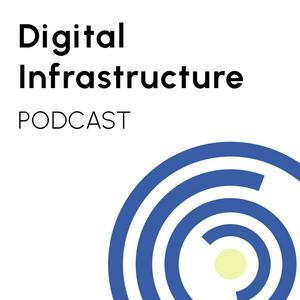
Ontvang de gratis radio.net app
- Zenders en podcasts om te bookmarken
- Streamen via Wi-Fi of Bluetooth
- Ondersteunt Carplay & Android Auto
- Veel andere app-functies
Ontvang de gratis radio.net app
- Zenders en podcasts om te bookmarken
- Streamen via Wi-Fi of Bluetooth
- Ondersteunt Carplay & Android Auto
- Veel andere app-functies


The Digital Infrastructure Fund Podcast
download de app,
luisteren.
